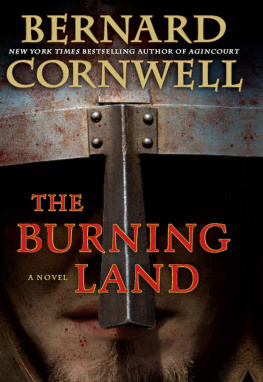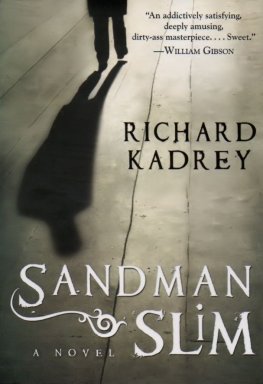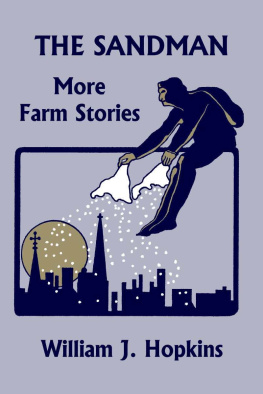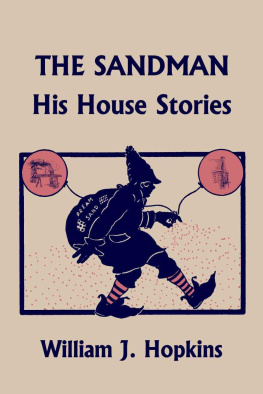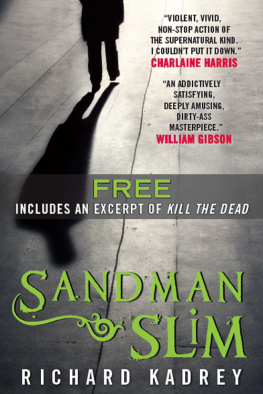GALLOWS THIEF
By
Bernard Cornwell
Copyright Bernard Cornwell 2001
For Antonia and Jef
PROLOGUE
Sir Henry Forrest, banker and alderman of the City of London, almost gagged when he entered the Press Yard for the smell was terrible, worse than the reek of the sewer outflows where the Fleet Ditch oozed into the Thames. It was a stink from the cesspits of hell, an eye-watering stench that took a man's breath away and made Sir Henry take an involuntary step backwards, clap a handkerchief to his nose and hold his breath for fear that he was about to vomit.
Sir Henry's guide chuckled. 'I don't notice the smell no more, sir,' he said, 'but I suppose it's mortal bad in its way, mortal bad. Mind the steps here, sir, do mind 'em.'
Sir Henry gingerly took the handkerchief away and forced himself to speak. 'Why is it called the Press Yard?'
'In days gone by, sir, this is where the prisoners was pressed. They was squashed, sir. Weighed down by stones, sir, to persuade them to tell the truth. We don't do it any longer, sir, more's the pity, and as a consequence they lies like India rugs, sir, like India rugs.' The guide, one of the prison's turnkeys, was a fat man with leather breeches, a stained coat, and a stout billy club. He laughed. 'There ain't a guilty man or woman in here, sir, not if you asks them!'
Sir Henry tried to keep his breathing shallow so he would not have to inhale the noxious miasma of ordure, sweat and rot. 'There is sanitation here?' he asked.
'Very up to date, Sir Henry, very up to date. Proper drains in Newgate, sir. We spoils them, we do, but they're filthy animals, sir, filthy. They fouls their own nest, sir, that's what they do, they fouls their own nest.' The turnkey closed and bolted the barred gate by which they had entered the yard. 'The condemned have the freedom of the Press Yard, sir, during daylight,' he said, 'except on high days and holidays like today.' He grinned, letting Sir Henry know that this was a jest. 'They has to wait till we're done, sir, and if you turn to your left you can join Mister Brown and the other gentlemen in the Association Room.'
'The Association Room?' Sir Henry enquired.
'Where the condemned associate, sir, during the daylight hours, sir,' the turnkey explained, 'except on high days and holidays like this one is today, sir, and those windows to your left, sir, those are the salt boxes.'
Sir Henry saw at the end of the yard, which was very narrow and long, fifteen barred windows. The windows were small, dark-shadowed and on three floors, and the cells behind those windows were called the salt boxes. He had no idea why they were called that and he did not like to ask in case he encouraged more of the turnkey's coarse humour, but Sir Henry knew that the fifteen salt boxes were also known as the devil's waiting rooms and the antechambers of hell. They were Newgate's condemned cells. A doomed man, his eyes a mere glitter behind the thick bars, stared back at Sir Henry who turned away as the turnkey hauled open the heavy door of the Association Room. 'Obliged to you, Sir Henry, obliged, I'm sure,' the turnkey knuckled his forehead as Sir Henry offered him a shilling in thanks for his guidance through the prison's labyrinthine passages.
Sir Henry stepped into the Association Room where he was greeted by the Keeper, William Brown, a lugubrious man with a bald head and heavy jowls. A stout priest wearing an old-fashioned wig, a cassock, stained surplice and Geneva bands stood smiling unctuously beside the Keeper. 'Pray allow me to name the Ordinary,' the Keeper said, 'the Reverend Doctor Horace Cotton. Sir Henry Forrest.'
Sir Henry took off his hat. 'Your servant, Doctor Cotton.'
'At your service, Sir Henry,' Doctor Cotton responded fulsomely, after offering Sir Henry a deep bow. The Ordinary's old-fashioned wig was three plump billows of white fleece that framed his whey-coloured face. There was a weeping boil on his left cheek while, as a specific against the prison's smell, a nosegay was tied around his neck, just above the Geneva bands.
'Sir Henry,' the Keeper confided to the prison chaplain, 'is here on official duty.'
'Ah!' Doctor Cotton's eyes opened wide, suggesting Sir Henry was in for a rare treat. 'And is this your first such visit?'
'My first,' Sir Henry admitted.
'I am persuaded you will find it edifying, Sir Henry,' the priest said.
'Edifying!' The choice of word struck Sir Henry as inappropriate.
'Souls have been won for Christ by this experience,' Doctor Cotton said sternly, 'won for Christ, indeed!' He smiled, then bowed obsequiously as the Keeper ushered Sir Henry away to meet the other six guests who had come for the traditional Newgate breakfast. The last of the guests was called Matthew Logan and he needed no introduction, for he and Sir Henry were old friends and, because both were city aldermen, they were considered very distinguished visitors this morning for the Court of Aldermen were the official governors of Newgate Prison. The Keeper and the Ordinary, whose salaries were fixed by the aldermen, pressed coffee on the two men, but both declined and Logan took Sir Henry's arm and led him to the hearth where they could talk privately beside the smouldering embers and smoking ashes.
'You're sure you want to see this through?' Logan asked his friend solicitously. 'You look damned pale.'
Sir Henry was a good-looking man, lean, tall and straight-backed with a clever and fastidious face. He was a banker, rich and successful. His hair, prematurely silver for he was only a few days past his fiftieth birthday, gave him a distinguished appearance, yet at that moment, standing in front of the prisoners' fireplace in the Association Room, he looked old, frail, emaciated and sickly. 'It's the early morning, Logan,' he explained, 'and I'm never at my shining best this close to dawn.'
'Quite,' Logan said, pretending to believe his friend's explanation, 'but this ain't an experience for everyone, though I must say the breakfast afterwards is very good. Devilled kidneys. This is probably my tenth or eleventh visit, and the breakfast has yet to disappoint me. How is Lady Forrest?'
'Florence keeps well, thank you for asking.'
'And your daughter?'
'Eleanor will doubtless survive her troubles,' Sir Henry said drily. 'A broken heart has yet to prove fatal.'
'Except in poets?'
'Damn poets, Logan,' Sir Henry said with a smile. He held his hands towards the remnants of the fire that was waiting to be blown back into life. The prisoners had left their cooking pots and cauldrons stacked about its edges and a pile of blackened potato peelings was curled in the ashes. 'Poor Eleanor,' Sir Henry said, 'if it was up to me, Logan, I'd let her marry, but Florence won't hear of it and I suppose she's right.'
'Mothers usually know best about such things,' Logan said airily, and then the room's low murmur of conversation died as the guests turned towards a barred door that had opened with a sudden and harsh squeal. For a heartbeat no one appeared in the doorway and it seemed all the guests held their breath, but then, to an audible gasp, a man carrying a stout leather bag stumped into sight. There was nothing about his appearance to explain the gasp. He was burly, red-faced and dressed in brown gaiters, black breeches and a black coat that was buttoned too tightly over his protuberant belly. He respectfully pulled off a shabby brown hat when he saw the waiting gentry, but he offered no greeting and no one in the Association Room acknowledged his arrival.
'That,' Logan told Sir Henry under his breath, 'is Mister James Botting, more familiarly known as Jemmy.'
'The petitioner?' Sir Henry asked softly.
'The very same.'
Sir Henry suppressed a shudder and reminded himself that men should not be judged by their outward appearance, though it was hard not to disapprove of a being as ugly as James Botting, whose raw-beef slab of a face was disfigured by warts, wens and scars. His bald pate was surrounded by a fringe of lank brown hair that fell over his frayed collar and, when he grimaced, which he did every few seconds in a nervous habit, he displayed yellow teeth and shrunken gums. He had big hands which heaved a bench away from a table onto which he slung his leather bag. He unbuckled the bag and, conscious of being watched by the silent visitors, brought out eight coils of thin white cord. He placed the coils on the table where he fussily arranged them so that they were in a neat row and equidistant from each other. Next, and with the air of a conjuror, he took out four white cotton sacks, each about a foot square, that he placed by the coiled lines and last of all, after glancing up to make sure he was still being observed, he produced four heavy ropes made of three-stranded hemp. Each rope looked to be about ten or twelve feet long and each had a noose tied into one end and an eye spliced in the other. James Botting laid the ropes on the table and then stepped back. 'Good morning, gentlemen,' he said smartly.
Next page






